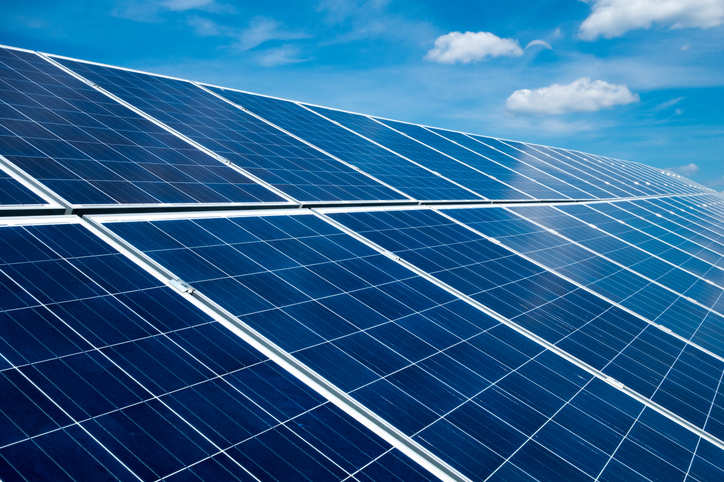March 15
Tata Power Solar doubles module manufacturing capacity to 400MW
Bengaluru: Tata Power Solar Systems Pvt. Ltd, a unit of power producer Tata Power Co. Ltd, on Tuesday said it has doubled its solar module capacity to 400 megawatt (MW) from 200 MW and increased its cell manufacturing capacity by 65% to 300 MW from 180 MW at its plant in Bengaluru, India.
Tata Power Solar, which was founded as a joint venture between Tata Power and British Petroleum Solar (BP Solar) in 1989, is one of the largest manufacturers of solar modules in the country. Solar photovoltaic (PV) modules, a key component in setting up of solar plants, make up for nearly 60% of a solar project’s cost. Module prices have been on a downward trend for the past two years due to a global oversupply.
As part of its expansion, the second one in less than three years, the company said it has also modernized and fully automated its entire manufacturing facility.
While executives at the company refrained from giving an exact amount, such kind of capacity expansions require an investment of more than Rs100 crore, they said at a media briefing on Tuesday.
“I think our products are faring much better than what we expected on paper,” said Ashish Khanna, executive director and chief executive of Tata Power Solar.
The firm’s expansion plan comes even as the government has set itself a target of adding 100GW of solar capacity and 60GW of wind capacity by 2022. India currently has a total installed solar power capacity of over 9GW and is expected to double to 18GW in the current calendar year.
“Silicon prices have reduced by virtue of which the cell and the module prices have come down. I don’t think viability is under question. What is important is the silicon prices, if they see the reverse trend then there will be a challenge. Otherwise if they continue to go down, it’s good for the customer, it’s good for everyone,” said Anil Sardana, chairman of Tata Power Solar.
Since inception, Tata Power Solar has shipped 1GW modules to over 30 countries, with over 60% of that in the past five years alone. But what has it, and other domestic solar module manufacturers worried is that they could lose out to inexpensive imports from China. Eight out of the top 10 solar module suppliers in the Indian market are now from China as against just four last year, according to Bridge to India, Mint reported in September.
“The current support system is primarily based on MSIPs (modified special incentive package scheme), where we get certain benefits on the capex employed but other than that there is no direct benefit, other than the market. The government is providing the market, a portion of the overall market is available only for the domestic segment. But if you ask me direct incentives, that’s not there,” said Khanna.
Unless Indian solar manufacturers receive further incentives, it would be difficult to compete with China, he said, adding that his firm has a market outside the country where quality is appreciated and there are anti-dumping duties against Chinese products that level out the playing field – such as the US, UK and Europe.






